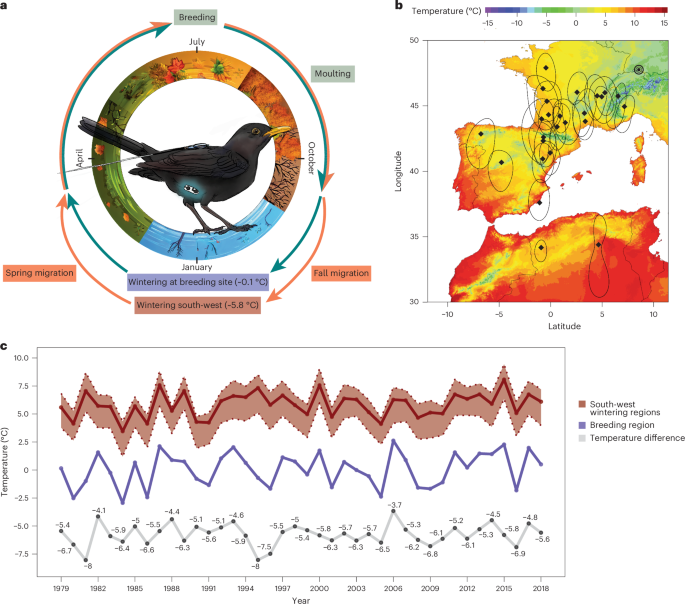2024-09-15 マックス・プランク研究所
<関連情報>
- https://www.mpg.de/23459460/0915-ornr-scientists-quantify-energetic-costs-of-the-migratory-lifestyle-in-a-free-flying-songbird-987453-x
- https://www.nature.com/articles/s41559-024-02545-y
渡り鳥のライフスタイルには、全体的なエネルギーコストはかからない Migratory lifestyle carries no added overall energy cost in a partial migratory songbird
Nils Linek,Scott W. Yanco,Tamara Volkmer,Daniel Zuñiga,Martin Wikelski & Jesko Partecke
Nature Ecology & Evolution Published:18 September 2024
DOI:https://doi.org/10.1038/s41559-024-02545-y

Abstract
Seasonal bird migration may provide energy benefits associated with moving to areas with less physiologically challenging climates or increased food availability, but migratory movements themselves may carry high costs. However, time-dynamic energy profiles of free-living migrants—especially small-bodied songbirds—are challenging to measure. Here we quantify energy output and thermoregulatory costs in partially migratory common blackbirds using implanted heart rate and temperature loggers paired with automated radio telemetry and energetic modelling. Our results show that blackbirds save considerable energy in preparation for migration by decreasing heart rate and body temperature 28 days before departure, potentially dwarfing the energy costs of migratory flights. Yet, in warmer wintering areas, migrants do not appear to decrease total daily energy expenditure despite a substantially reduced cost of thermoregulation. These findings indicate differential metabolic programmes across different wintering strategies despite equivalent overall energy expenditure, suggesting that the maintenance of migration is associated with differences in energy allocation rather than with total energy expenditure.

